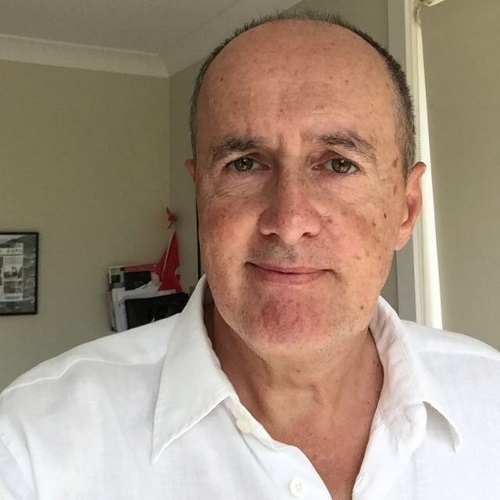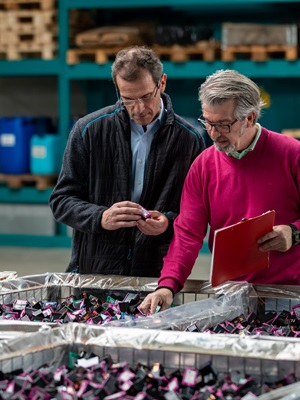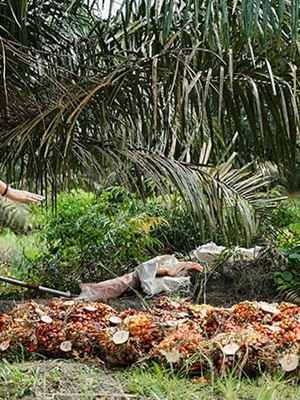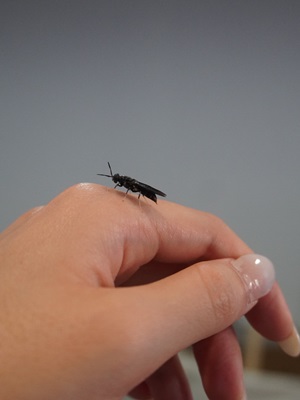The natural world and its vulnerability is coming into sharper focus, with biodiversity recognised as a systemic risk. What can be done by the investment community to help improve the chronic waste management problem in emerging Asia?
The debate is timely for Asia Pacific because, for all the natural beauty the region has to offer, arguably the most dispiriting aspect is the amount of plastic and other waste that pollutes our oceans and waterways.
I recently returned from an inspiring tour of the Maluku region and the spice islands of Indonesia. Watching the ocean from the ferry boat taking us back to Ambon from Banda Neira, we saw whales, dolphins and flying fish in close proximity. The sea was calm and the weather was perfect. At times like this, you feel the enormity of the ocean and the beauty of the natural world.
But then, as we began to catch sight of land, we also noticed plastic bottles appearing with increasing regularity on the water. By the time we reached the inner harbour at Ambon, there was a constant trail of plastic and other waste running alongside the boat.
A young boy, probably about 5 or 6 years old, passed us holding an empty plastic water bottle. As he passed he threw it overboard. It was an abrupt reminder that before a nation can start down the road to becoming green, it must first invest in educating the people about the dangers of pollution.
It is estimated that 11 million metric tonnes of plastic enters the ocean every year, creating a serious threat to not just the health of our oceans but also the livelihoods of millions of people.
In discussions during my travels in Asia Pacific, it is patently clear that waste management infrastructure is often inadequate and, in some cases, non-existent.
“We don’t have modern municipal waste management systems in Indonesia, even in a city like Jakarta,” a senior executive in the infrastructure finance sector told me.
Nor does Indonesia have a municipal bond market that could be used for infrastructure project financing. Even a state-sponsored non-bank institution finds it challenging to bring projects to market, with political interference and government indecision prolonging the process.
The ‘circular economy’ agenda represents a key opportunity for addressing this problem, but it requires significant investment and innovative policy measures.
The solution to reinforcing the circular, sustainable plastics economy lies in the combination of new policy measures, increased capacity and transformative innovation in the design, collection, sorting and recycling of plastics.
Last month (January 2024) The World Bank launched a seven-year $100 million plastic waste reduction bond, with a financial return linked to plastic waste collection and recycling credits, and carbon credits expected to be generated by two projects. The selected projects in Ghana and Indonesia aim to reduce and recycle plastic waste in vulnerable communities, cutting plastics leaking into nature and oceans.
This ground-breaking outcome bond mobilises private capital to support the financing of projects with positive climate and development impacts – with outcomes measured by the generation of plastic and carbon credits issued on the Verra Registry. The innovative use of plastic credits in this transaction introduces an entirely new way of financing plastic collection and recycling operations, as well as preventing plastic waste from leaking into the ocean.
“Investors benefit financially when positive development outcomes are achieved," said World Bank Group Chief Financial Officer, Anshula Kant. "Outcome bonds like this create a win-win with the local communities and ecosystems that benefit from less pollution.”
Investors in the bond will forego a portion of ordinary coupon payments, with the equivalent amounts instead being provided, through a hedge transaction with Citi, to support the financing of the projects selected by Plastic Collective UK, who manage the projects' plastic and carbon credit programs. In return, the investors will receive annual coupons composed of a fixed amount plus payments linked to the sale of a portion of the plastic and carbon credits produced by the projects.
Coincidentally, on my flight back to New Zealand, I watched a fascinating documentary entitled ‘Plastic Earth’. It’s recommended viewing if you want to know what is being done to eradicate non-perishable fossil fuel-derived plastics from our production processes. It bodes well for the future of our oceans and biodiversity if they can bring these new containers, which will biodegrade in landfill within a matter of months, to the mass market in the next few years.
Here’s the trailer: https://www.youtube.com/watch?v=PALvqRgku-s
Posted 08/02/2024

















